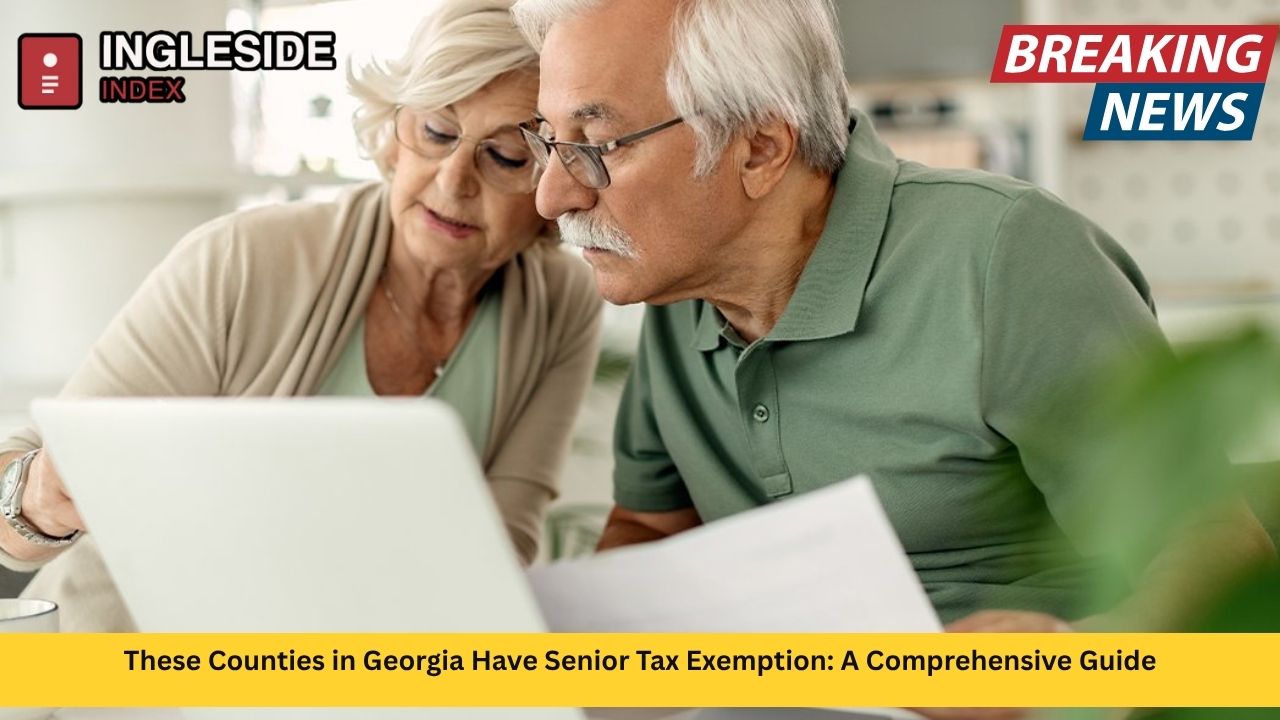Georgia is renowned as a retirement-friendly state, offering a blend of warm weather, southern hospitality, and, crucially, an array of tax exemptions for seniors. Among the marquee benefits are property tax breaks that seniors can claim in many Georgia counties. These tax incentives have enticed many retirees, contributed to demographic shifts in several regions, and become a topic of considerable interest for both residents and newcomers.
This comprehensive blog article will take you through the full landscape of senior property tax exemptions across Georgia, highlighting which counties offer them, what the exemptions entail, eligibility rules, and the tangible impact on local communities. Whether you’re a Georgia resident approaching retirement, relocating from out-of-state, or a curious observer, this guide will help you understand where and how seniors benefit most from local tax policies.
Understanding Senior Tax Exemptions in Georgia
Georgia’s property tax system includes various exemptions designed to reduce the property tax burden for homeowners, with additional, enhanced breaks for seniors. These local initiatives are built atop a state-level foundation, with counties empowered to create and expand their own exemptions.
What Is a Senior Tax Exemption?
A senior tax exemption is a form of property tax relief available to homeowners who have reached a specified age, usually 62 or 65. The exemptions may cover all or part of the property taxes, sometimes with distinct provisions for school taxes, county taxes, or municipal taxes.
Why Do Counties Offer These Exemptions?
Counties in Georgia implement senior tax exemptions to:
-
Make homeownership more affordable for retirees.
-
Attract older adults to their communities.
-
Maintain economic diversity and bolster local economies.
-
Respond to demographic shifts—the senior population in Georgia has been growing steadily.
Key Georgia Counties with Senior Tax Exemptions
Let’s look at a selection of Georgia counties offering robust tax exemptions for seniors. The variety is wide, with differences in exemption value, qualifying ages, and income limits.
Metro Atlanta and Surrounding Counties
Fulton County (Atlanta)
-
Multiple exemptions, including a base homestead exemption and senior-specific reductions.
-
The City of Atlanta and several suburbs within Fulton offer their own local senior exemptions, often stacking with county breaks.
-
Seniors age 65+ can receive increased exemptions; city-specific programs can even offer a 100% exemption from certain city property taxes.
Cobb County
-
Complete exemption from all school taxes for seniors 62 and older.
-
This applies to all residents throughout the fast-growing cities of Marietta, Smyrna, Kennesaw, and more.
-
No income limit for the school tax exemption, making it especially attractive to retirees at all income levels.
Gwinnett County
-
School tax exemption for seniors 65+ (100% exemption from school taxes).
-
Partial exemptions start at age 62.
-
Income limits apply to some exemptions (e.g., $10,000 per household), excluding retirement sources.
DeKalb County
-
Substantial exemptions for seniors, including reductions for those at age 62, and more significant ones at age 65 and 70.
-
City-level programs (in places like Dunwoody or Chamblee) may further enhance these exemptions, with city taxes often completely waived for those 70+.
Clayton County
-
Seniors 65+ may receive a double homestead exemption, plus additional breaks for disabilities.
-
Income limits are sometimes required and usually tied to county median incomes.
North Georgia Counties
Cherokee County
-
School tax exemption for seniors age 62+ (up to $49,900 of the home’s value).
-
New legislation requires a five-year homestead in the county before qualifying for the school tax exemption after January 1, 2025.
-
Covers rapidly developing cities like Canton, Woodstock, and Ball Ground.
Forsyth County
-
Senior exemption applies for those 65+.
-
Exemptions can include reductions in school, county, and municipal property taxes, subject to income qualifications.
Hall County
-
Full exemption on school taxes for residents age 70+.
-
Partial exemptions available at 62 and 65, with specific eligibility based on income levels.
Coastal Georgia Counties
Chatham County (Savannah)
-
Offers a range of senior tax exemption programs.
-
Seniors 65+ can receive substantial reductions in assessed value for school taxes.
-
The City of Savannah may have separate exemptions or supplemental savings.
Glynn County (Brunswick, St. Simons Island)
-
Property tax breaks for seniors, especially on school taxes, are available.
-
Exact amounts may differ based on age milestones (typically 62, 65, or 70).
Camden County
-
Homeowners 62+ are eligible for up to a $25,000 exemption on county and school taxes.
South and Middle Georgia Counties
Jones County
-
$15,000 exemption for homeowners aged 62+ with no income limits.
-
Reflects the growing trend of smaller counties offering appealing exemptions to attract and retain retirees.
Lamar County
-
Up to $10,000 exemption, with specific rules based on age and income, helping older adults reduce annual housing costs.
Valuation Freeze Exemptions
Some counties have implemented an additional “valuation freeze” exemption, where the assessed value of a senior’s property is frozen at the value when the exemption is first claimed. Future increases in assessable value (due to appreciation or inflation) do not affect the homeowner’s tax unless they move or change property ownership.
Notable Counties with Valuation Freeze
-
Baldwin
-
Barrow
-
Camden
-
Carroll
-
Chatham
-
Cherokee
-
Clarke
-
Cobb
-
Dade
-
DeKalb
-
Douglas
-
Effingham
-
Fannin
-
Floyd
-
Forsyth
-
Fulton
-
Gilmer
-
Glynn
-
Greene
-
Gwinnett
-
Habersham
-
Henry
-
Liberty
-
McIntosh
-
Meriwether
-
Murray
-
Muscogee
-
Oconee
-
Pierce
-
Putnam
-
Toombs
-
Towns
-
Walton
-
Ware
-
White
School Tax Exemptions: A Major Draw
Among the most significant benefits for seniors are school tax exemptions, which can account for over half of a property owner’s tax bill. These exemptions are often the largest single category in county and city tax reduction programs for seniors.
-
Cobb County: Complete school tax exemption (no income test for age 62+)
-
Cherokee County: Full school tax exemption for those 62+
-
Gwinnett County: 100% exemption from school taxes at age 65, partial at 62; income cap for some programs
-
Douglas County: Seniors 62+ receive a full school tax exemption
-
Forsyth & Fulton Counties: Generous school tax breaks at age thresholds (62 or 65+)
Fast Facts: Georgia’s Senior Tax Exemptions
-
Over 70% of Georgia’s population lives in a county or city with a senior-targeted property tax exemption.
-
Estimated 90-100% of eligible residents claim their exemptions, with some variance by county.
-
Georgia does not tax Social Security income, and there is a sizeable state retirement income exclusion—up to $65,000 for those 65+ (as of 2025).
-
Exemptions not only benefit those on fixed incomes but also attract new, often more affluent retirees and contribute to continued growth in cities like Marietta, Alpharetta, Peachtree City, and Savannah.
Eligibility and Application Process
Age Requirements
-
Most counties require homeowners to be at least 62 or 65 years old by January 1 of the year they apply.
-
Some municipalities have extra breaks at ages 70 or 75.
Residency
-
Property must be the applicant’s primary residence.
-
Some exemptions require homeowners to have resided in the county or on the property for a certain number of years (e.g., five-year minimum in Cherokee County post-2025).
Income Limits
-
Many counties apply income limits, especially for the more generous exemptions (often between $10,000-$30,000, sometimes excluding certain retirement sources).
-
Some counties, including Cobb and most school-tax exemptions, have no income limit.
Deadline
-
Most counties require applications by April 1 of the tax year.
-
Once granted, most exemptions auto-renew unless home ownership changes or the recipient becomes ineligible.
City-Level Exemptions
Within counties, many cities offer additional exemptions or enhancements:
-
City of Atlanta, City of Sandy Springs: School and city tax exemptions stack with county exemptions.
-
Dunwoody and Chamblee (DeKalb County): Offer 100% exemptions from city taxes for qualifying seniors.
-
Smaller cities like Clarkston, Decatur, and Doraville all maintain tailored programs for their aging populations, with some cities granting up to $40,000 off the assessed value.
Impact and Trends
Senior population growth in Georgia is expected to outpace national averages, with urban and suburban counties experiencing the most pronounced influx.
Economic Impact
-
These exemptions can mean thousands of dollars in annual savings for a senior homeowner.
-
In counties with no income cap, even higher-income retirees benefit, making Georgia particularly attractive to well-off newcomers.
-
Counties balance these policies with budget provisions for schools and services by strategically structuring eligibility or supplementing with other revenue sources.
Migration and Demographics
-
Tax exemptions are cited alongside climate and cost-of-living as top reasons retirees move to metro Atlanta, coastal cities, and North Georgia communities.
-
In some places, retirees (65+) account for nearly one in five new homeowners.
Frequently Asked Questions
Which counties have the most generous exemptions?
-
Cobb, Douglas, Cherokee, and Gwinnett are frequently touted for the breadth and ease of their school tax exemptions.
Are there any places where seniors don’t get much savings?
-
Some smaller or rural counties, or cities like Avondale, do not offer local add-ons beyond the standard state exemptions.
Can my exemption transfer if I move?
-
Exemptions do not usually transfer if you move to a new property, even within the same county—residents must reapply.
Are these exemptions permanent?
-
They remain in place as long as eligibility is maintained, barring new local legislation.
Conclusion
Georgia’s counties lead the South in crafting property tax exemptions for seniors, making the state a mecca for retirees seeking tax relief. While each county—and often each city—offers its variation, a robust array of property tax benefits now covers more than 70% of Georgia’s population. Whether you’re thinking about retiring to Marietta, Savannah, Alpharetta, or the lakeside communities of North Georgia, understanding the patchwork of senior tax exemptions could save you thousands annually and enhance your quality of life for years to come.
Before finalizing your plans, consult with local tax offices, review eligibility, and confirm any recent changes to local ordinances. With careful planning, Georgia’s senior tax exemptions can turn homeownership into a more affordable, attractive proposition—one reason so many are now calling the Peach State home in their golden years.











Leave a Comment